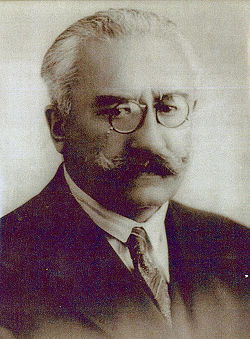
The third cabinet of Alexandru Vaida-Voevod was the government of Romania from 11 August to 19 October 1932.

The third cabinet of Alexandru Vaida-Voevod was the government of Romania from 11 August to 19 October 1932.
The ministers of the cabinet were as follows: [1]